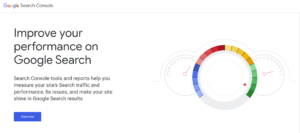In a significant move, Google has retired the Page Experience Report from Search Console. This feature, which was a cornerstone for measuring how users interact with websites, including Core Web Vitals and other page experience signals, is no longer accessible. The decision has left SEOs, developers, and website owners wondering about its implications and how to adapt their strategies.
This article delves into the reasons behind Google’s decision, its impact on search engine optimization (SEO), and actionable steps to ensure your website continues to rank well despite this change.
What Was the Page Experience Report?
Introduced in May 2020, the Page Experience Report provided valuable insights into how users perceived a website’s experience. It focused on key metrics like Core Web Vitals—a set of performance indicators that measure loading speed, interactivity, and visual stability—as well as mobile usability, HTTPS security, and the absence of intrusive interstitials.
The report allowed site owners to:
- Identify performance issues.
- Track their progress in improving user experience.
- Monitor how these metrics impacted search rankings.
However, as of 2024, Google has decided to retire this feature, marking a shift in how they emphasize user experience.
Why Did Google Retire the Page Experience Report?
Google’s decision to remove the Page Experience Report may seem abrupt, but it aligns with broader changes in their approach to ranking signals and SEO tools. Here are the primary reasons for this move:
Evolving User Experience Metrics: Google has been refining how it evaluates user experience. Instead of relying on standalone reports, the company is integrating these insights into broader ranking systems and updates.
Simplification of Tools: Over time, Search Console has accumulated various features, leading to potential overlap and confusion for users. By retiring underused or redundant tools, Google aims to streamline its platform.
Focus on Core Web Vitals: While the Page Experience Report is gone, the emphasis on Core Web Vitals remains strong. Google wants webmasters to prioritize these metrics but without the constraints of a specific report.
Changing Ranking Dynamics: Google clarified that page experience signals have always been one part of their ranking algorithm and not the sole determinant of search performance. Retiring the report reflects this nuanced approach.
Impact on SEOs and Website Owners
The removal of the Page Experience Report has both immediate and long-term implications for SEO professionals and site owners.
1. Loss of a Centralized Dashboard
Many SEOs relied on the report to quickly assess user experience issues. Without it, tracking these metrics will require alternative tools or a more manual approach.
2. Shift to Core Web Vitals Monitoring
Core Web Vitals remain a priority, but their monitoring now depends on external tools like Google Lighthouse, PageSpeed Insights, or third-party platforms such as GTmetrix.
3. Greater Emphasis on Holistic SEO
With the retirement of the report, SEOs will need to adopt a more comprehensive strategy that includes user experience alongside content quality, backlinks, and keyword optimization.
4. Increased Importance of Manual Audits
Regularly auditing websites for performance, usability, and accessibility will become essential in the absence of an automated summary from Search Console.
What Should You Do Now?
To maintain and improve your website’s performance in light of this change, here are the steps you should take:
1. Focus on Core Web Vitals
- Use tools like Google Lighthouse, PageSpeed Insights, and WebPageTest to monitor key metrics such as:
- Largest Contentful Paint (LCP)
- First Input Delay (FID)
- Cumulative Layout Shift (CLS)
- Aim for consistent improvement to meet Google’s performance thresholds.
2. Leverage Other Google Tools
- Search Console Insights: For content performance analysis.
- Mobile-Friendly Test: To ensure mobile usability.
- Safe Browsing Transparency Report: To maintain site security.
3. Adopt Third-Party Tools
Platforms like Ahrefs, SEMrush, and Moz can supplement the loss of the Page Experience Report by providing detailed site audits, including user experience data.
4. Conduct Regular Audits
- Evaluate your site for:
- HTTPS security.
- Non-intrusive interstitials.
- Fast-loading pages on both mobile and desktop.
- Create a checklist to address common issues.
5. Monitor Algorithm Updates
Google’s algorithm continues to evolve, and user experience remains a key factor. Stay updated on algorithm changes and adjust your strategy accordingly.
Will This Affect Rankings?
The retirement of the Page Experience Report does not mean Google has stopped valuing user experience. Rather, it signals a shift towards a more integrated evaluation of ranking factors.
Google has reiterated that while page experience metrics are important, they are part of a larger ecosystem. High-quality content, robust backlinks, and keyword optimization remain critical for search rankings.
However, neglecting user experience could still have indirect consequences, such as increased bounce rates and lower engagement, which can negatively impact SEO.
The Future of Page Experience in SEO
As Google continues to refine its algorithms, it is clear that user experience will remain integral to SEO. What has changed is how these signals are tracked and reported. Moving forward, SEOs should expect:
- Deeper Integration of UX Metrics: Instead of standalone reports, user experience signals will likely be embedded into ranking systems.
- Advanced AI Tools: AI-driven platforms like Google Bard and machine learning algorithms will play a bigger role in analyzing user behavior and providing insights.
- Increased Collaboration Between Teams: SEO, web development, and UX design teams will need to work more closely to ensure cohesive optimization efforts.
Conclusion
The retirement of Google Search Console’s Page Experience Report marks the end of an era but also paves the way for new opportunities in SEO. While the report offered valuable insights, its removal encourages SEOs and site owners to adopt a broader, more integrated approach to improving user experience and maintaining search rankings.
By focusing on Core Web Vitals, leveraging alternative tools, and staying updated on algorithm changes, you can ensure your website remains competitive in search results. As always, adapting to change is the key to thriving in the ever-evolving landscape of SEO.
About The Author
Marketing Team
The AOK Marketing Team is a diverse group of amazing individuals driven to help all of our clients succeed. Great people are everywhere, and we believe that people should control their workday, their work environment, and where they live. We have team members in 9 countries: United States, Canada, Egypt, Belgium, Ireland, Australia, India, Pakistan, and Hong Kong.
How can we help you?






